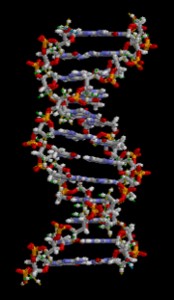.gif) VIARTIS
|
||||||||||
|
PARKINSON'S DISEASE |
||||||||||
|
|
||||||||||
|
|
PARKINSON'S DISEASE NEWS
|
|
||||||||
|
APRIL 2015
30th April 2015 - New research NEW GENETIC CAUSE OF PARKINSON'S DISEASE
A new genetic cause of Parkinson's Disease has been discovered called CHCHD2. CHCHD2 is associated with the development of Parkinson's Disease. Most genetic causes of Parkinson's Disease do not inevitably cause Parkinson's Disease but make the person affected more likely to develop Parkinson's Disease.
There are now at least 32 known genetic causes of Parkinson's Disease : PARK 1 to 3, PARK 4 to 20, Tyrosine Hydroxylase deficiency, Aromatic L-amino acid decarboxylase deficiency, CHCHD2, CYP2D6, DRD2. DRD3, GLIS1, LINGO1, MAPT, NRA42, PITX3, RIT2, STH. Details of individual genes can freely accessed at the NCBI database Reference : The Lancet Neurology [2015] 14 (3) : 274-282 (M.Funayama, K.Ohe, T.Amo, N.Furuya, J.Yamaguchi, S.Saiki, Y.Li, K.Ogaki, M.Ando, H.Yoshino, H.Tomiyama, K.Nishioka, K.Hasegawa, H.Saiki, W.Satake, K.Mogushi, R.Sasaki, Y.Kokubo, S.Kuzuhara, T.Toda, Y.Mizuno, Y.Uchiyama, K.Ohno, N.Hattori) Complete abstract In order to refer to this article on its own click here
29th April 2015 - News release BASEBALL LEGEND DIAGNOSED WITH PARKINSON'S DISEASE
Kirk Gibson, the former American baseball player and manager, now aged 57, has been diagnosed with Parkinson's Disease. As a player he won two Baseball World Series. He said "I have faced many different obstacles in my life, and have always maintained a strong belief that no matter the circumstances, I could overcome those obstacles. While this diagnosis poses a new kind of challenge for me, I intend to stay true to my beliefs. With the support of my family and friends, I will meet this challenge with the same determination and unwavering intensity that I have displayed in all of my endeavors in life. I look forward to being back at the ballpark as soon as possible." For more information go to News release
9th April 2015 - New research NOCTURIA IN PARKINSON'S DISEASE
Nocturia (often waking at night to urinate) is a frequent complaint in Parkinson's Disease. Researchers aimed to assess the mechanism of nocturia in people with Parkinson's Disease by determining the prevalence of nocturnal polyuria in Parkinson's Disease. Nocturnal polyuria is an increase in urine production in the night but with a decrease in daytime urine production. For more information go to Nocturia
The prevalence of nocturnal polyuria and nocturia was not higher than in the general population of the same age. This suggests that they occur, not as was thought, because of Parkinson's Disease, but because of the older age that is usually associated with Parkinson's Disease. Reference : Progres en Urologie [2015] Apr 2 [Epub ahead of print] (J.Romain, F.Torny, J.P. Dumas, X.Gam�, A.Descazeaud) Complete abstract In order to refer to this article on its own click here
3rd April 2015 - New research MONITORING PARKINSON'S DISEASE USING SMARTPHONES
Smartphones have been assessed for their use in monitoring Parkinson's
Disease. A smartphone (smart phone) is a mobile phone with an advanced
mobile operating system.
For more information go to
Smartphone
Measuring Parkinson's Disease symptoms via a smartphone is highly accurate in distinguishing people with Parkinson's Disease. The researchers conclude that it is therefore feasible and has potential value as a diagnostic support tool. Reference : Parkinsonism Related Disorders [2015] Mar 7 [Epub ahead of print] (S.Arora, V.Venkataraman, A.Hang, S.Donohue, K.M.Biglan, E.R.Dorsey, M.A.Little) Complete abstract In order to refer to this article on its own click here
|
||||||||||
.gif) |
||||||||||
| �2006-2015 Viartis | ||||||||||
| [email protected] | ||||||||||


 Nocturia
was defined as one or more awakenings at night to urinate. Two definitions
of nocturnal polyuria were used : NUV33 (33% or more of total urination
occurs at night), and NUP90 (nighttime urination exceeds 90ml per hour or
more. The prevalence of nocturnal polyuria was 64% according to the NUV33
definition, and 17% according to the NUP90 definition. Among those people
with nocturia the prevalence of nocturnal polyuria was 66% according to the
NUV33 definition and 21% according to the NUP90 definition.
Nocturia
was defined as one or more awakenings at night to urinate. Two definitions
of nocturnal polyuria were used : NUV33 (33% or more of total urination
occurs at night), and NUP90 (nighttime urination exceeds 90ml per hour or
more. The prevalence of nocturnal polyuria was 64% according to the NUV33
definition, and 17% according to the NUP90 definition. Among those people
with nocturia the prevalence of nocturnal polyuria was 66% according to the
NUV33 definition and 21% according to the NUP90 definition. 